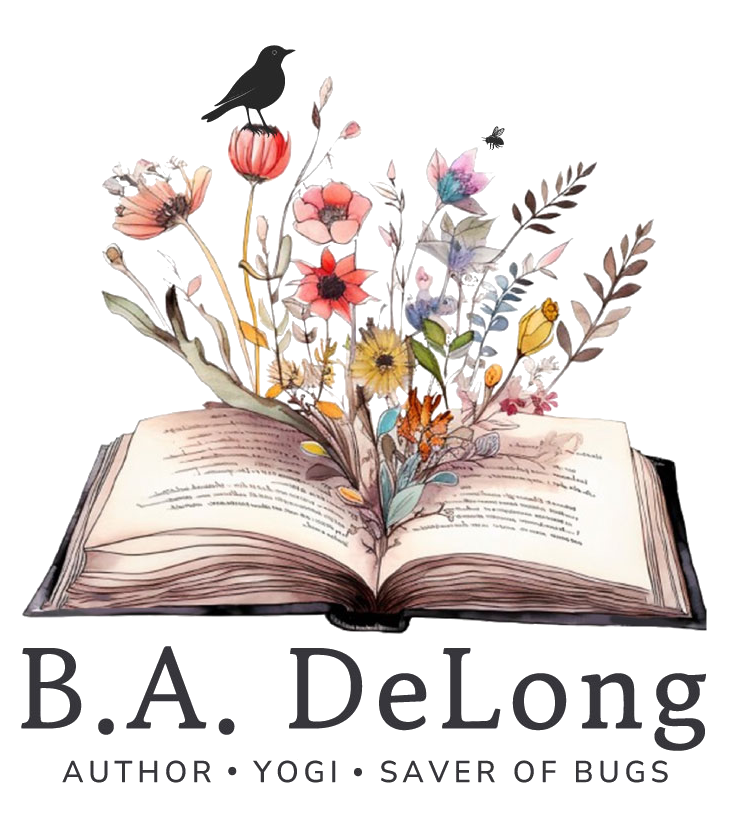In her second book, Not Your Mama, Not Your Milk, B.A. DeLong (the pen name of author Brandy Walker) weaves a tender yet powerful story that introduces young readers to the concepts of animal welfare, empathy, and ethical choices. With charming woodland characters, an inquisitive little girl, and a determined mother cow at its center, the book offers both a heartfelt adventure and a gentle lesson about where our food comes from.
Set against the backdrop of a peaceful, sun-dappled forest, the story opens with three animal friends—Rocco, Penny, and Sarge—meeting at their favorite hangout spot. Each friend suggests a different activity for the day, their playful banter setting a light, joyful tone. But their carefree plans are quickly disrupted when McKenzie, a distraught cow, runs into the clearing.
When McKenzie, a dairy cow, flees her farm after her newborn calf is taken, she seeks help from a group of animal friends. They are confused and saddened to learn of her plight and promise to help her find her baby. This marks the beginning of their journey to understand the harsh realities of dairy farming.
Their investigation of the farm reveals a distressing scene: rows of mama cows confined in tight stalls, all appearing exhausted and dejected. These cows share their own stories of loss, explaining how their calves are routinely taken so their milk can be harvested for human consumption. They also reveal that once they are no longer deemed “useful,” they are sent away, their ultimate fate unknown. The friends return to McKenzie, burdened by these revelations but more determined than ever to help.
A hopeful turn occurs with the introduction of Paige, a compassionate young girl who lives near the farm. Paige discovers McKenzie in the woods and, instead of shooing her away, she listens to the frantic gestures of the animal friends, piecing together the story. Like many children, Paige had a naive, idyllic view of dairy farms, imagining happy cows freely grazing. This encounter shatters her illusion, beautifully illustrated by a thought bubble of her “happy farm” being torn as she realizes the truth.
Deeply moved, Paige rushes home to share her newfound knowledge with her parents, passionately arguing that animals are sentient beings capable of love, grief, and fear. Initially, her parents dismiss her concerns, considering the cows the farmer’s property. However, Paige’s heartfelt arguments eventually convince them that they cannot ignore the truth.
Together with Rocco, Penny, and Sarge, Paige and her family meet with the farmer, proposing a bold plan: to create a sanctuary where calves can live freely and retired mama cows can live out their days in peace. In exchange, they offer to volunteer at the farm to help with the workload. The farmer, initially hesitant, is swayed by their proposal and McKenzie’s relentless pursuit of her calf.
A fortunate twist of fate accelerates their mission when a truck transporting McKenzie’s calf breaks down nearby. The farmer agrees to let those calves, including McKenzie’s baby, become the sanctuary’s first residents. Paige makes a heartfelt request for the calves to visit their mothers on the farm pasture, which the farmer surprisingly accepts. The final pages depict a thriving sanctuary, a haven of safety, dignity, and love for animals once treated as commodities. An epilogue adds a thought-provoking fact: humans are the only species that drink milk from another species into adulthood, inviting readers to consider plant-based alternatives with the poignant reminder, “If it’s not your mama, it’s not your milk.”
Not Your Mama, Not Your Milk skillfully balances storytelling with education. DeLong avoids being didactic; instead, she fosters curiosity and compassion by showing events through the eyes of relatable characters. The woodland animals’ confusion mirrors that of children learning where dairy milk comes from for the first time, and Paige serves as a role model of advocacy and action.
The book’s illustrations, as described by DeLong, will undoubtedly enhance its emotional impact. Thought bubbles, expressive animal faces, and contrasting farm images (idyllic versus realistic) help convey complex ideas in an age-appropriate way.
While written for children, the story resonates with readers of all ages. It asks big questions: Why do we take milk meant for calves? Why aren’t cows allowed to bond with their babies? Can individuals make a difference? The answers lie not in guilt, but in empowerment—showing that change is possible through kindness, education, and community action.
DeLong’s choice to focus on a rescue sanctuary as the solution is particularly inspiring. It introduces young readers to the concept of animal sanctuaries, planting seeds of compassion and critical thinking.
B.A. DeLong has created more than just a story—Not Your Mama, Not Your Milk is a tender exploration of empathy, family, and the interconnectedness of all living beings. It’s a timely, necessary book for children growing up in a world increasingly aware of animal rights and environmental issues.
With its lovable characters, engaging narrative, and hopeful resolution, this book has the power to spark meaningful conversations in homes and classrooms alike. It’s a reminder that sometimes, even the smallest voices—whether they belong to a child or a woodland creature—can lead to profound change.



